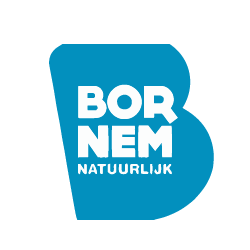Who are they, what do they do, what drives them to start the 100km Dodentocht in Bornem with 13,000 annually? Ghent University surveyed 1 383 walkers about their motivation to walk a hundred kilometers. “The motivation of walkers to participate in the 100km Dodentocht turns out to be a unique predictor of the experience and walking performance, in addition to gender and age,” says Joachim Waterschoot, research manager at UGent.
“Last year, our 13,000 tickets left in less than two hours. You wonder what drives walkers to want to walk those hundred kilometers in a maximum of 24 hours. Why do they want to be there at all? The Faculty of Psychology came up with the idea to check on the motivation of our walkers. As an organization, this is very interesting information to help and prepare walkers even better ”, says André De Clerck, chairman vzw Kadee Dodentocht.
Ghent University investigated the motivation of 1 383 walkers to participate in the 50th edition of the 100km Dodentocht. 22 walkers were subsequently interviewed extensively. “The results show that the type of motivation of the walker, for the walk, is a strong predictor of how the walker keeps walking, how the walker handles pain and boredom, and even walking performance,” explains Joachim Waterschoot.
Four types of motivation for walking
A few days before the Dodentocht, the walkers received a questionnaire in which their motivation was assessed. Four groups emerged from this, each with their own type of motivation to pursue their goal.
- “I have to prove myself to myself / the other”. The first group (32%) are walkers with a rather poor quality of motivation (little enthusiasm, a lot of pressure). They experience quite a bit of pressure and have less of a feeling that they have chosen to participate. The goal is set only because it has to be, either because there is a sense of obligation from the outside, because they are putting themselves under pressure, or because both forms are experienced. During the tour they motivate themselves to walk further by focusing on their own expectations (“internal pressure”) and / or on the expectations of the other (“external pressure”).
- “It’s just a lot of fun to do.” The second group (27%) are walkers with good motivation (a lot of enthusiasm, little pressure). They are enthusiastic about achieving their goal and experience their goal as their own personal choice. It is an expression of who they are and / or find the goal personally valuable or interesting. During the tour they try to find ways to make walking interesting and useful and pay less or no attention to internal or external pressure.
- “I want to prove myself, but it has to remain fun.” The third group (19%) are walkers with a lot of motivation (a lot of enthusiasm, a lot of pressure). They have a lot of “desire” to pursue their goal and at the same time experience pressure. Although they use their best efforts during the hike to keep themselves motivated, they put more and more pressure on themselves as the hike progresses.
- “I’ll see what happens”. The fourth group (22%) consists of walkers with little motivation (little enthusiasm, little pressure). They have no obvious reason to commit themselves and rather work their way through the Dodentocht carefree. They also employ few strategies to keep themselves walking.
Results
“During the tour we asked the walkers at four times. Namely at 27.3 kilometers in Ruisbroek, 53 kilometers in Merchtem, 72 kilometers in Lippelo and 89.8 kilometers in Sint-Amands. The results showed that the amount of pain for everyone increased sharply to 72 kilometers and then stabilized. Boredom peaked at 72 kilometers and descended towards the finish. The walkers also lost their purpose of walking even further as the end came in sight.
Hikers from the second and third groups (with strong motivation and a lot of pressure) fell into a negative spiral during the tour. The pressure, which they already experienced beforehand, increased the sensitivity to pain and boredom. This put them under even more pressure. For example, a hiker said, “I have to walk further here, otherwise it will lose face.” In vain this just resulted in more feelings of pain and boredom.
The absence of enthusiasm among group 1 and 4 walkers meant that they lost their purpose to continue walking faster than others. It was striking that the well-motivated group started to protect themselves from the pain and boredom by focusing on the usefulness and pleasure of the walk.
Next year again?
Walkers’ motivation for the hike was predictive of some key outcomes during and after the hike. First, motivation predicted the chance of gaining weight, on top of the gender (men are more likely) and the age of the walker (the older, the more likely to gain weight). “The poorly motivated group had a lower chance of gaining weight. Most of the publishers, namely 42%, came from this group. Remarkably, during the interviews, walkers from this group indicated that the well-motivated group sooner gave up quickly (“Walking for fun? That doesn’t exist.”), While the well-motivated group predicted a faster task for the poorly motivated group. (“You have to want it yourself and not so much for someone else”). Second, participants from the less motivated group and the poorly motivated group indicated that they did not feel like participating again. The strong and well-motivated groups made it clear that they will be there again at the 51st edition ”, Joachim Waterschoot concludes.
UGent will start again next year. In August 2020, the university will conduct a follow-up study in which the focus will be on the experience of walkers and the effect of a scientific mental preparation on the experience and performance during the walking tour. More information about this research can be found on their website.
More information:
Link to the results and information about the 2020 Dodentocht study: www.ugent.be/dodentocht
Contact person Ghent University:
Joachim Waterschoot – Vakgroep Ontwikkelings-, Persoonlijkheids- en Sociale Psychologie
T 09 264 62 70 – M 0476 59 18 60
Contact person 100km Dodentocht:
Ilse Robyn – Press officer Dodentocht vzw
T 03 331 30 20
E pers@dodentocht.be of ilse.robyn@dodentocht.be














